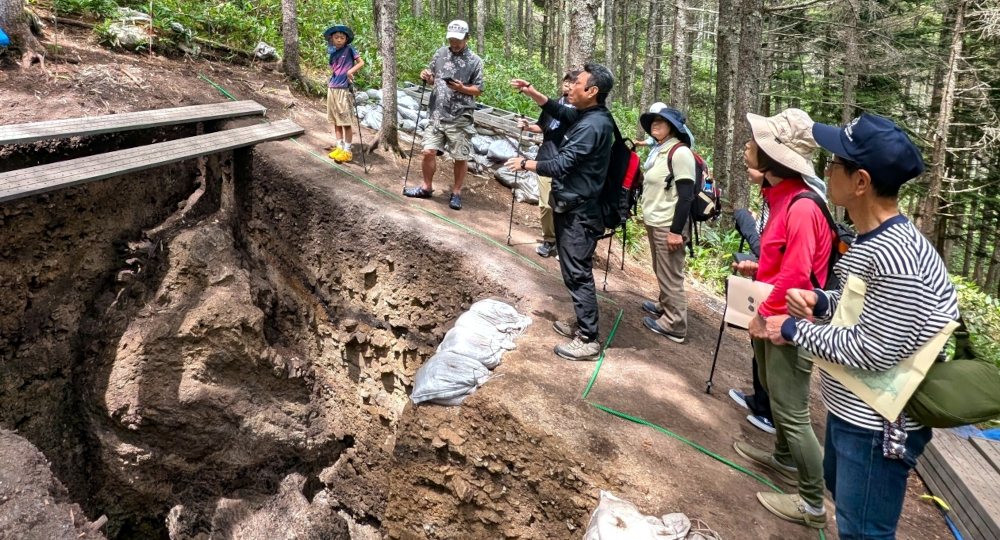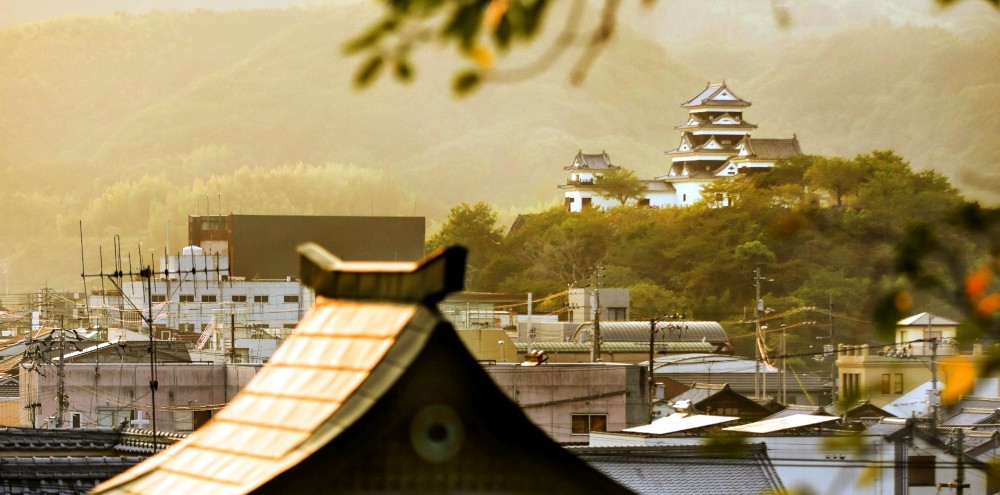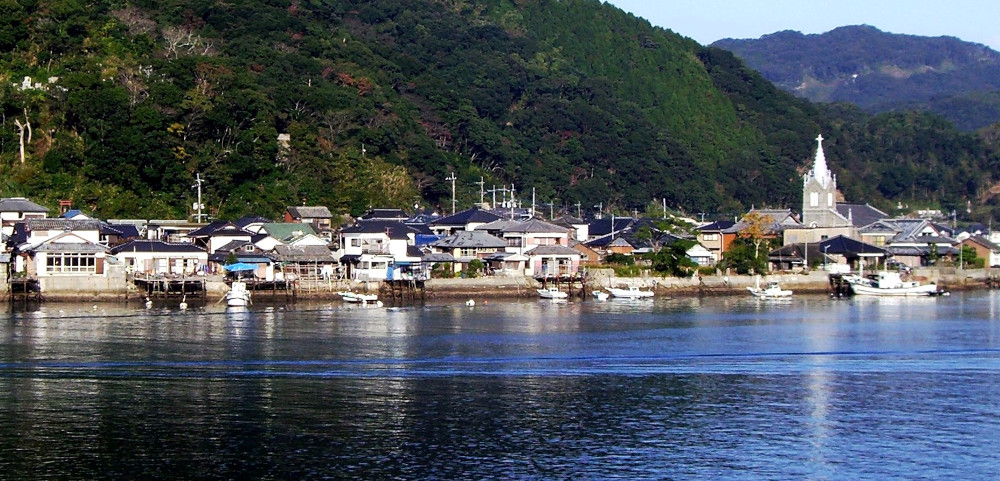The world now seeks a form of travel that preserves the resources and culture of
destinations while also enriching the lives of local
communities.
As demand for inbound tourism increases in Japan, as shown by the
highest-ever number of foreign
tourists in 2024, there is demand for providing a wider variety of attractive travel
options within the country that are of high value to both travelers and tourist
destinations.
In response to this demand, the Japan Tourism
Agency created its Sustainable
Travel Awards in 2023 to
highlight the country’s best sustainable travel products and initiatives.
At the 2nd Sustainable Travel Awards ceremony on January 27, 2025, Takanori
Suzuki — Vice Commissioner of the Japan Tourism Agency — described the current
state of tourism in Japan: "While inbound tourism is thriving, challenges remain
— including
overtourism,
labor shortages in tourist areas, and the concentration of tourism demand in
urban centers."
He emphasized the need for collaboration between local groups and residents
working to attract tourists and major travel agencies in urban areas, urging
them to use this awards event to showcase the mass appeal of sustainable travel
offerings.
Grand Prize: The Shimosuwa Long Stay Trip
 A guided tour of the Hoshigato Ruins, a renowned obsidian site, is part of '4 Themes of Shimosuwa' | Image credit: Shimosuwa Town Community Development Corporation Tourism Promotion Office
A guided tour of the Hoshigato Ruins, a renowned obsidian site, is part of '4 Themes of Shimosuwa' | Image credit: Shimosuwa Town Community Development Corporation Tourism Promotion Office
The Grand Prize was awarded to the 4 Themes of Shimosuwa - Shinshu Shimosuwa
5-day Long Stay Trip, organized by the
Shimosuwa Town Community Development Corporation Tourism Promotion Office
(Shimosuwa Town, Nagano Prefecture). The sightseeing itinerary is designed
in collaboration with local experts, museums and research institutions to
provide in-depth exploration in Shimosuwa — home to attractions such as Suwa
Taisha Shrine and the Hoshigato Ruins.
For example, visitors can explore an obsidian mine from the Jōmon
Period (Japan’s neolithic
period) — normally off-limits — while receiving commentary from a local
discoverer and excavator. They can also study the historic Nakasendo
Road via rare documents at the
Lake Suwa Museum collection, usually not accessible to the public. A
nighttime kayaking experience on Lake Suwa allows visitors to enjoy the
starry sky in profound silence while immersing themselves in the scenery and
cherished local culture.
Hidetoshi Kobayashi, visiting professor at Hokkaido University's
Center for Advanced Tourism Studies
(CATS) and chair of the awards committee,
explained why the tour won Grand Prize: "The program is limited to a small
number of participants to create a deep learning experience. The kayaking
experience on the lake is also unique in that it is held at night — not for the
purpose of ‘kayaking’ but for feeling the darkness, silence and the starry sky."
On accepting the award, Toru Miyasaka — Mayor of Shimosuwa Town and a
representative of the Shimosuwa Town Community Development Corporation,
expressed his excitement: "We are fostering a town where not only tourism
businesses, but every resident, can proudly serve as a guide. Sustainable
tourism development is a core principle of our town's tourism plan, and we will
continue striving toward this goal — remembering that 'developing tourism means
developing the town.'"
2nd Place: Ozu Castle Town Regeneration Stories
 The wooden reconstruction of Ozu Castle in the distance | Image credit: Kita Management
The wooden reconstruction of Ozu Castle in the distance | Image credit: Kita Management
The 2nd-place prize was awarded to Ozu Stories: Ozu Castle Town Regeneration
Stories by Kita
Management
(Ozu City, Ehime Prefecture). The city's sustainable development strategy
has earned high praise, including a 2024 Silver
Award from international
certification body Green Destinations. The defining feature is the
renovation of multiple historical buildings throughout the castle town,
repurposing them to create a unique and immersive visitor experience.
The tour guides, called the "Tsumugi Bito (people who help travelers and
locals meet each other)," are local businesses and residents that share insight
into the restoration of traditional homes and historical buildings while also
engaging in cultural exchange with tour participants.
"The tour is interesting in that it allows visitors to experience not only the
completed building but also the site before its renovation, and it shows the
actual process of renovating,” Kobayashi commented. “By allowing visitors to
experience the story of 'ongoing town redevelopment,' it creates a positive
cycle that encourages visitors to stay involved as a related member of the
population and to participate in town development," explaining why he selected
the tour for the 2nd-place winner.
Five tours win Special Prize
 Sakitsu Village | Image credit: Regional Tourism Research Institute
Sakitsu Village | Image credit: Regional Tourism Research Institute
Five initiatives were selected for the Special Prize:
-
The Guided Sustainable Tour of Sakitsu Village World Heritage with
Dinner, organized by the Takarajima, Amakusa Tourist
Association
(Amakusa City, Kumamoto Prefecture), is a guided bus tour that takes
participants through the Amakusa region — where public transportation is
underdeveloped — to both prevent overtourism and provide a deep sightseeing
experience. Sakitsu Village is one of the 12 properties in Kumamoto
Prefecture registered as World Heritage Sites by UNESCO in 2018 as
"Hidden Christian Sites in the Nagasaki
Region," which preserve the history of
secretly continuing the Christian faith while coexisting with other
religions during the 17th to 19th centuries when Christianity was banned in
Japan.
-
The Okutsugaru Jōmon Wellbeing Stay Plan: 2 Days 1
Night stay
package, organized by the General Incorporated Association Kanagi Genki
Mura (Goshogawara City, Aomori Prefecture), allows visitors to
experience an epic adventure through the Jōmon Period — an era
classification unique to Japan, dating back approximately 8,000 years ago.
"Okutsugaru" refers to the area surrounded by mountains in the
northwestern part of Aomori Prefecture's Tsugaru Peninsula, where many
Jōmon Period sites remain — including the Kamegaoka
ruins, where the
famous shakokidogu clay
figure was
excavated. This stay has been highly praised not only for its value in
relaying an experience highlighting the life, food and culture of the Jōmon
Period but also for its ability to redefine these cultural aspects from a
wellbeing perspective — appealing to a wide range of visitors beyond history
enthusiasts.
-
Leading travel agency Club Tourism International
Inc (Koto-ku, Tokyo) won a Special Award
for its "Traveling Ikimono School!" Nature-Positive School
program (website available in Japanese only).
Held in Ikusaka
Village — a
"zero-carbon village" in Nagano Prefecture — the program consists of six sessions in
which participants can learn about initiatives to reverse the loss of
biodiversity
and put nature on a track toward recovery, as well as regenerative
tourism
— a growing trend in travel that helps to improve the places you
visit.
-
From an island in the Seto Inland Sea, the Walk & Experience Tour to
Enjoy Nakayama Senmaida Field and Rural Kabuki
Stage
— organized by the Shodoshima Tourism Association (Shodoshima-cho,
Kagawa Prefecture) — is a collaboration between the towns of
Shodoshima and Tonosho, located next to each other on Shodoshima
Island. The tour includes a visit to local rice paddies and the stage of a
rural kabuki performance, performed by people on the island since the
Edo Period and
designated as an important, intangible cultural asset by the Japanese
government.
-
Fukui Hitomono Design Co.,Ltd. (Fukui City,
Fukui Prefecture; website available in Japanese only) won an award for its
Enishi no Tabi: Sanpo-yoshi kara Juppo-yoshi e ("Journey of a destined
encounter: From three-way satisfaction to 10-way satisfaction") experience
in the town of Eiheiji, Fukui Prefecture. The program is designed to
bring people together with the culture and spirit of Zen unique to Japan.
Participants will experience zazen meditation and vegetarian cooking with
the monks at the renowned Eiheiji
Temple. The subtitle to the experience,
"Sanpo-yoshi kara Juppo-yoshi e," is a message to not just limit oneself
to the traditional Japanese management philosophy of "sanpo-yoshi" — which
focuses on the idea that a "business is only good if it not only makes the
seller and buyer happy but also contributes to society" — but it also
encapsulates the Buddhist concept of "juppo," referring to "all things
at all times."
Five companies also won a 2025 Encouragement Prize:
- Iwasaki Gofukuten Ltd. (Saku City, Nagano Prefecture)
- Area Promotion Japan Inc. (Oyamazakicho, Kyoto Prefecture)
- Alternative Farm Miyako Co., Ltd.
(Miyakojima City, Okinawa Prefecture)
- Kumamoto Prefecture Travel Agency
Cooperative Association (Kumamoto City)
- Nakashibetsu Tourist
Association (Nakashibetsucho, Hokkaido Prefecture).
Normalizing the participation of local communities in tourism
The number of attractive and sustainable travel options originating in Japan
that are of high value to both tourists and tourist destinations is steadily
increasing. At the awards ceremony, Kobayashi looked back on past awards and
pointed out a change in the direction of regional revitalization through
tourism.
"A cycle in which a portion of the proceeds are used for regional conservation
and the way in which residents take the initiative in participating in tourism
is now becoming the norm," he said. "Last year, we received an offer from an
overseas travel agency as a result of winning this award, and the response has
been tremendous. In the coming years, the idea of visiting award-winning regions
may gain traction. It is essential to identify and share outstanding case
studies, and we aim to continue this initiative."
Get the latest insights, trends, and innovations to help position yourself at the forefront of sustainable business leadership—delivered straight to your inbox.
Sustainable Brands Japan
Published Mar 7, 2025 8am EST / 5am PST / 1pm GMT / 2pm CET